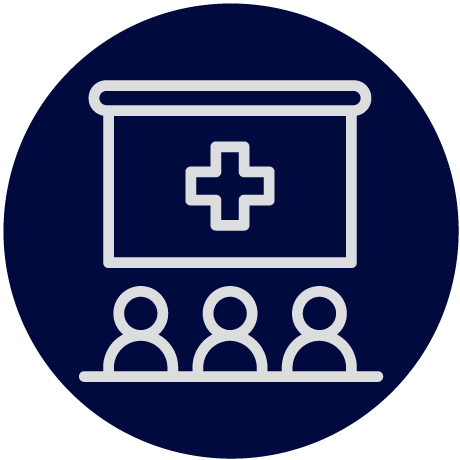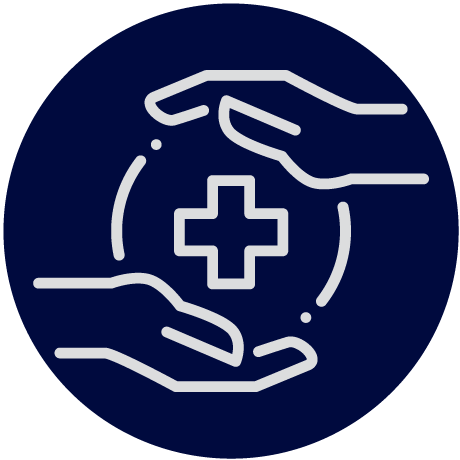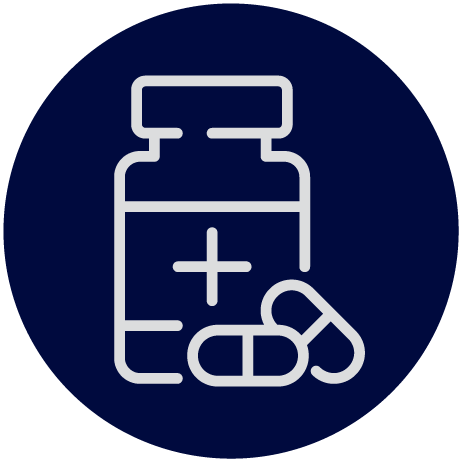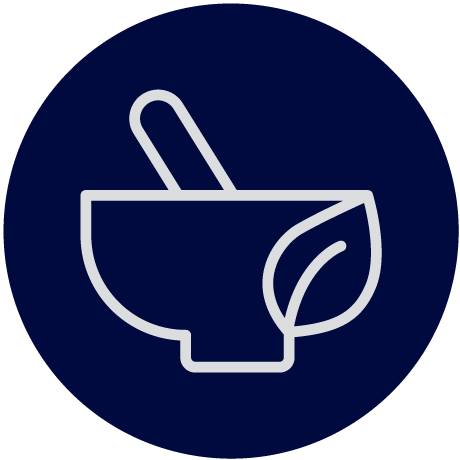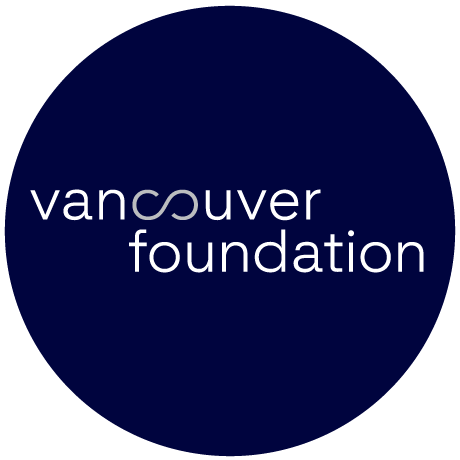
To respect the data sovereignty of our partners, most of the project details are available to partners only. Public access of the project final documents are available under “Uprooting Pharmacy Reports” and “Indigicare Medicines Pharmacy Workshops”.
Please feel free to contact the UPROOT team should you have any questions. If you are meant to have access to any of these projects, please email the team at uproot.team@ubc.ca.
Uprooting Pharmacy: A Two-Eyed Seeing Path for Change
Background: Through UPROOT’s collective and ongoing engagement with the Indigenous patients and partners we serve, there is a clear community expressed need to better understand how we can provide culturally safe pharmacy services that integrate both Indigenous and western worldviews to support the physical, mental, emotional and spiritual wellbeing of Indigenous peoples. Pharmacists are a key component of the healthcare system, frequently identified as one of the most accessible and trusted care providers. As a profession, pharmacy is deeply rooted in a colonial and Eurocentric view of western values, evidence-based medicine, and a transactional approach to care provision. Ironically, this model of “community” pharmacy often lacks the humility, flexibility, and understanding of the Indigenous communities they are destined to serve, contravening Canada’s Truth and Reconciliation Commission’s Calls to Action, the United Nations Declaration on the Rights of Indigenous Peoples, and In Plain Sight. The result has been a homogenous and discriminative culture of community pharmacy that is often steeped in harmful stigma and pervasive implicit bias. For Indigenous people, this results in significant barriers to receiving traditional medicines and healing practices, and pressure to forgo those methods as inferior. Further exacerbating these issues in community pharmacy is the unsafe environment for Indigenous-identifying pharmacists, an absence of learning pathways for Indigenous pharmacy students, and a lack of Indigenous-owned pharmacies. Connections between these systemic issues to the determinants of health can be traced back to the structural conflict between Indigenous and western worldviews.
Goal: This project and these reports seek to uproot colonial and systemic issues in pharmacy that have led to discriminatory practices experienced by Indigenous individuals, families, and communities, by exploring the question: “What are the culturally safe principles for integrating Indigenous and Western worldviews in the decolonization and Indigenization of community pharmacy practice?”
Methods: UPROOT’s role was to provide research support, pharmacy-specific expertise, and actionable change by developing educational resources for practitioners in their effort to decolonize and Indigenize their practice. We acknowledged the direction of our progress is more important than the destination and expected to learn a great deal collectively, as we unpack this complex question.
Outputs:
- Community Engagement Report
- Indigicare Medicines Practicum
- Pharmacy Colonization Report
- Traditional Medicines Guide
- Clinical Pharmacist Service Model
Community Partner(s)
Lu’ma Native Housing Society
Lu’ma Medical Centre
Metro Vancouver Aboriginal Executive Council (MVAEC)
Slaxin Lelum Medicine House
Student(s)
Katie Arisz, E2P PharmD Student
Kadence Cave, NITEP Student
Katherine Huerne, UBC PhD Candidate
Ilaha Ibrahimova, UBC Masters Student
Sunu (Isabel) Kim, UBC PhD Candidate
Madison Runa, E2P PharmD Student
Hailie White, E2P PharmD Student
Olivia Yeung, UBC Masters Student
Granting Agency/Partner(s)
Vancouver Foundation
Indigicare Medicines Pharmacy Workshops
Background: Indigicare Medicines Pharmacy is part of Lu’ma Group of Companies and is an Indigenous-owned and operated pharmacy located in urban Vancouver. This pharmacy takes a unique approach to patient care by weaving Indigenous traditional knowledge and healing practices with Western medicine in a safe and respectful manner. The UPROOT team has worked extensively with the team at Lu’ma for the design and implementation of this pharmacy. During the design process, feedback was collected from Indigenous pharmacy clients of various greater Vancouver locations, where evident themes emerged that patients would like more opportunities to meet with pharmacy staff, ask questions, and learn in different ways than typical pharmacies provide.
Goal: To create a series of workshops covering a variety of topics and that emphasize engagement with healthcare professionals and provide attendees the opportunity to ask questions and gain knowledge about managing health, medications, and overall wellness. By offering targeted education and resources, the pharmacy strives to empower its community, promote healthier lifestyles, and ensure that patients and housing clientele are equipped with the tools they need to make informed decisions about their care.
Methods: In response to community engagement feedback from patients, we developed a series of 10 monthly workshops that can be hosted by Indigicare Medicines pharmacy open to all patients. The workshops have been designed to be delivered with the support of UBC pharmacy students with supervision by a pharmacist. The setting of the workshops are envisioned to be primarily at Indigicare Medicines, but may also be offered in an outreach environment, such as at Lu’ma’s various housing sites. These topics of these workshops have been thoughtfully chosen based on topics of our research and in correspondence with notable events during the year (e.g. May is mental health awareness month, so a mental health workshop is suggested). Each workshop is scheduled for 1 hour and contains an icebreaker, presentation, an interactive activity, and some suggested take-home items for participants. Note that these are student-generated and in draft form. There is always a chance that the content can be out of date as the evidence for these topics advances. Prior to use with patients, they should be reviewed for accuracy and modified to suit the audience and context.
Outputs:
- Healthy Aging Workshop
- Safe Medication Disposal Workshop
- Blister Packaging Workshop
- Seasonal Allergies Workshop
- Supporting Mental Health Workshop
- Sun Safety Workshop
- Chronic Pain Workshop
- Cough, Cold & Flu Workshop
- Zoom Video Calls, Phishing Workshop
- Diabetes Management Workshop
Community Partner(s)
Indigicare Medicines
Lu’ma Medical Centre
Student(s)
Alyssa Burrows, E2P PharmD Student
Kadence Cave, NITEP Student
Nailah King, NITEP Student
Tyler Floen, NITEP Student
Emma Mills, E2P PharmD Student
Granting Agency/Partner(s)
Vancouver Foundation
Co-Developing a Culturally Safe Engagement Framework with Urban Indigenous Partners
Background: There is a long-standing history of improper engagement with Indigenous individuals that often lacks respect, humility, and understanding of Indigenous protocols. To rebuild trust with people, researchers must commit to reconciliation and develop strategies for ethical engagement. The UPROOT team has more than 10 years of history working with individual Nations to decolonize and Indigenize pharmacy education and practice. The team has primarily worked with individual Nations, but their next project will focus on Urban Indigenous people which represent various First Nations, Métis, and Inuit people. Due to the diversity, UPROOT lacks clarity on the proper principles of engagement in lieu of Nation-specific approaches.
Goal: This project aims to create an engagement framework for engaging with Indigenous individuals, communities and/or organizations by answering the following research question: “What are the culturally safe principles and protocols for engagement with Urban Indigenous partners?”
Methods: The engagement framework was built using a double diamond model and includes four key phases: 1) Discovery (Indigenous focus group and literature review), 2) Defining (qualitative analysis to identify key themes), 3) Developing (draft review and feedback by project partners), 4) Deliver (refinement and delivery of a final ethical engagement framework document to partners).
Outputs:
- Student Research Poster on Development and Delivery of the Engagement Framework
- UPROOT’s Official Engagement Framework Document
Community Partner(s)
None
Student(s)
Brandon Whitmore, E2P PharmD Student
Tia DeGroot, NITEP Student
Granting Agency/Partner(s)
Vancouver Foundation
